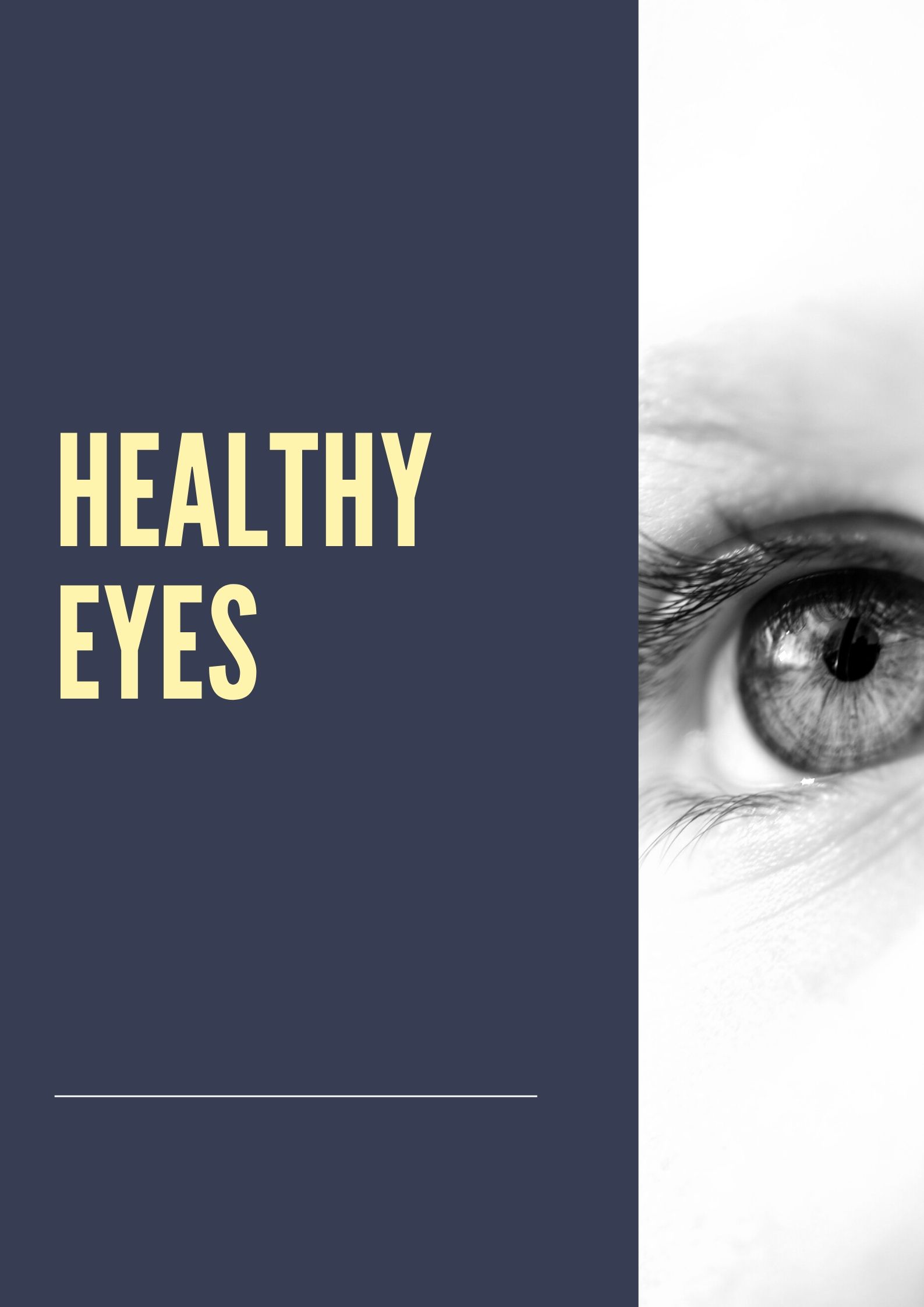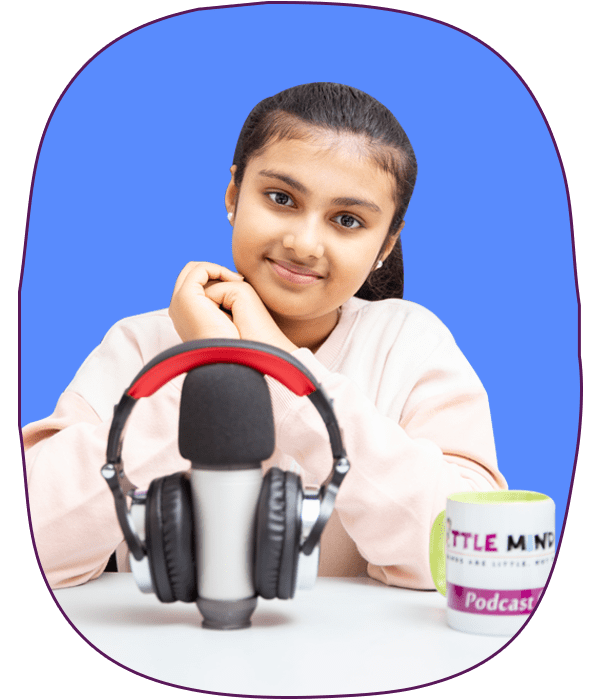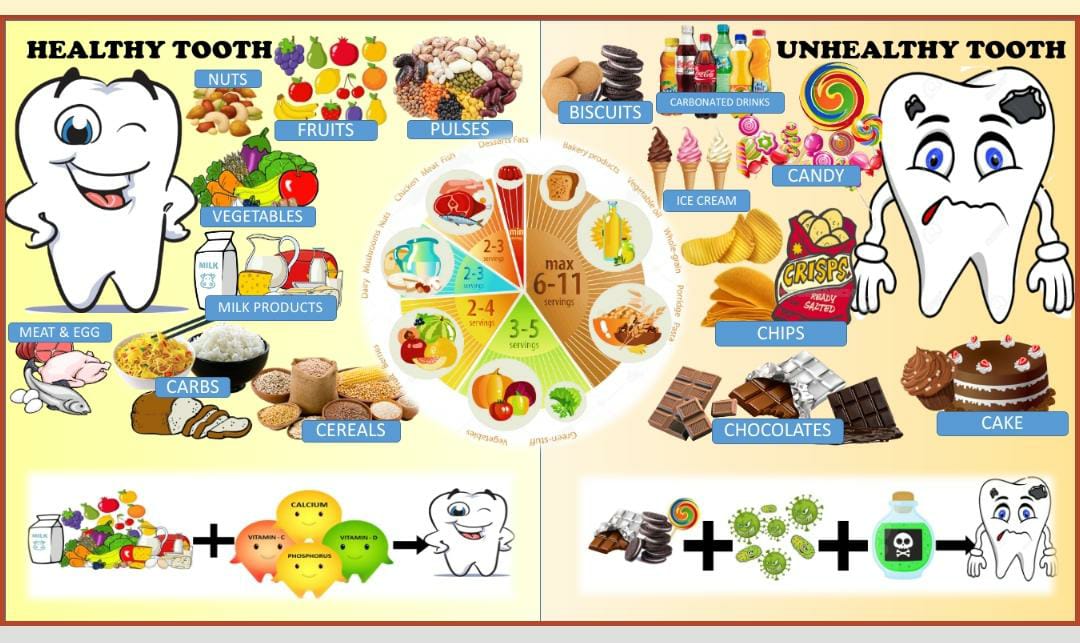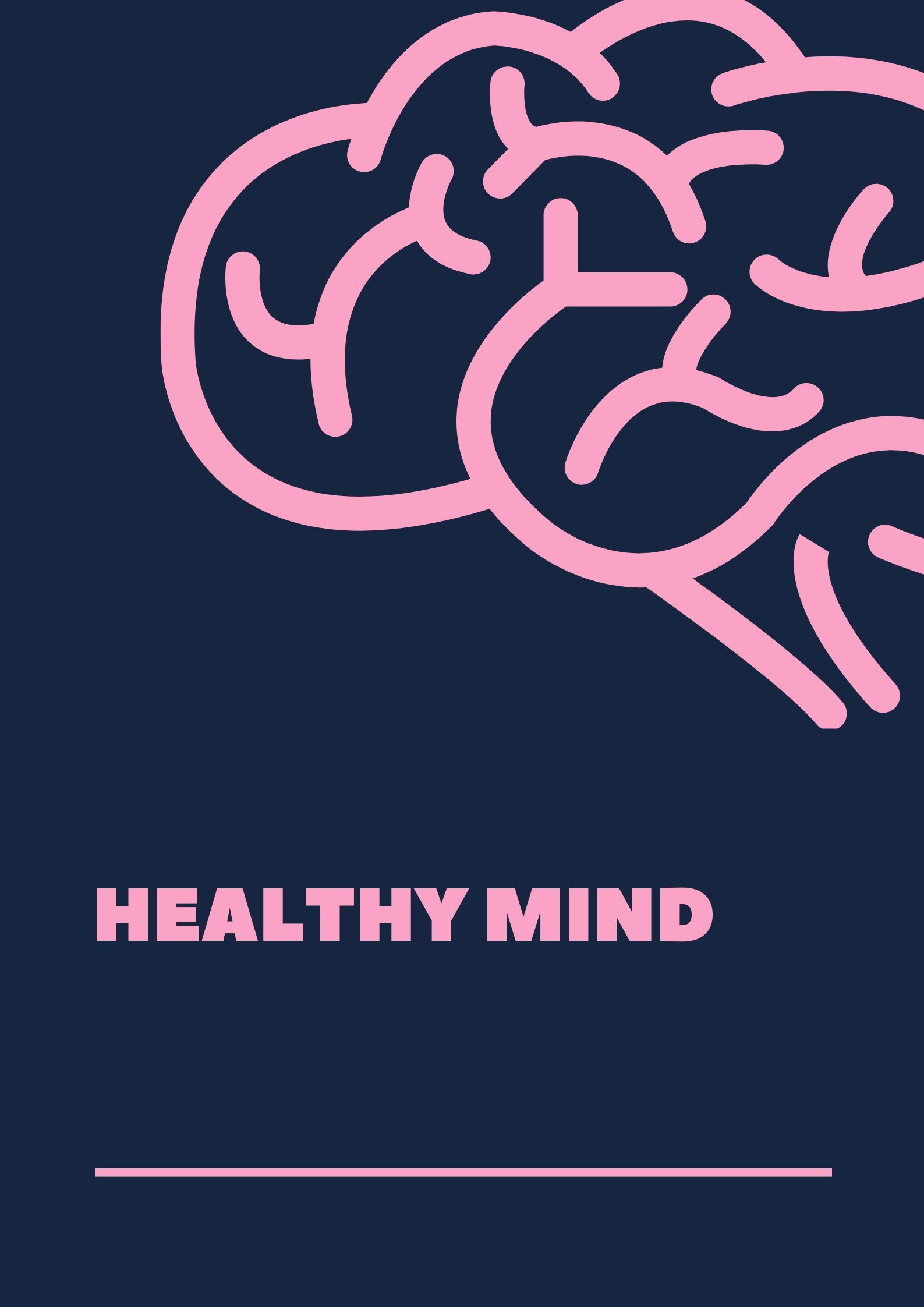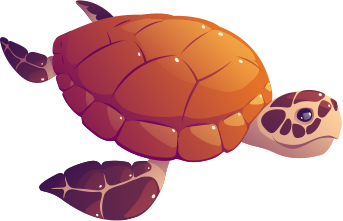Healthy Eyes
Transcript
Episode 011:
Interview 4: Healthy Eyes
[0.01] {Intro Music}
[0.09] Siyona: Hello, my friends welcome to another episode of my podcast Little Mind Chats. Minds are Little. Not our Thoughts. I am your host Siyona.
[0.18] We see, look, observe and enjoy beautiful things around us. Can you think about how it would be without our eyes? I would never be able to imagine doing anything without my eyes. I had a lot of questions around what, why and how about our eyes. Why glasses? Why headaches? Why should we take care of our eyes?
[0.42] My Paediatric Ophthalmologist, Doctor Manjunath is here with us to clearly explain so we understand so much more about our eyes. He has a long list of achievements with over 18 years of experience in ophthalmology.
[1.00] Hmmm… but what is ophthalmology? It is a branch of medicine in which they scientifically study eyes and their diseases. Doctor Manjunath has done Fellowship in paediatric Ophthalmology and Squint apart from his long list of degrees. He worked at the National University Hospital, Singapore as Registrar for 6 years before moving back to India. He’s now the Director of Nethra eye hospital in Bengaluru and continues to practice there as a consultant.
[1.36] Siyona: Hello Doctor, welcome to my podcast.
[1.39] Dr. Manjunath: Hi Siyona.
[1.41] Siyona: Hi. How are you today?
[1.43] Dr. Manjunath: Good. Just finished lunch.
[1.45] Siyona: Let’s begin with the most basic question. Doctor, can you help us understand why eyes are so important.
[1.53] Dr. Manjunath: Very simple Siyona. Close your eyes for a minute. (pause) “What do you see now? Can you do anything this way?”
[1.58] Siyona: No, I can’t indeed. I can talk.
[2.00] Dr. Manjunath: (laughs) we interact with the world to the maximum through our eyes. Through vision. So, if we don’t have eyes, if we can’t see, we are cut off from the external world to the extent of 60%. Eyes does 60% of the job of the special sense organs.
[2.18] Siyona: Oh wow. Really! I never knew that.
[2.22] Dr. Manjunath: “You want to know how it feels without being able to see?” Just do a blind fold for few minutes. We can’t walk around, we can’t play, we can’t appreciate nature, we can’t do so many things.
[2.33] Siyona: Yeah right. But Doctor, “what kind of foods really help our eyes? Are there any foods that are bad for our eyes?”
[2.45] Dr. Manjunath: We should always have a balanced diet. Have all varieties of fruits and vegetables. I did listen to and look at your podcast on healthy eating. So, you can ask all your friends to listen to that to get a good idea of what to eat and what not to eat. Eat those things which are easy to digest. Have more fluids, lot of water. Less salt, less of direct carbohydrates and for the eye vitamin A is good and vitamin is good. You get vitamin A in papaya in plenty. In mangoes, this is a season of mangoes. So, enjoy the mangoes and also carrots.
[3.22] Siyona: Yeah. Obviously, carrots.
[3.24] Dr. Manjunath: And not to forget the greens. Do you like greens? Do children like greens? (laughs).
[3.29] Siyona: No. Obviously, not. Yeah, we are gonna do it.
[3.35] Dr. Manjunath: Good. That’s the spirit.
[3.37] Siyona: “How do we know if eyes are healthy and will remain healthy for a long time?”
[3.43] Dr. Manjunath: See, when you look at some body externally, a happy child with a healthy body, good health, healthy eyes, energy will be oozing out of the eyes. Eyes will be shining white. Eyes will be straight ahead, normal size. No swellings here and there. These are simple things which we can subconsciously recognise. And you look at somebody, you know that there is something wrong or everything is normal. So, externally these things will help us know if somebody is ok. But, if you want to be very sure, you need to get a simple check-up with an eye doctor at an appropriate time.
[4.20] Siyona: So now, if anybody is not feeling well, especially with their eyes, I can tell.
[4.26] Dr. Manjunath: Definitely, you can.
[4.29] Siyona: “Why do a lot of kids in my generation have glasses?” My parents told me; it isn’t a good sign to have glasses at a young age. But I was super excited to have them.
[4.39] Dr. Manjunath: Well. Very good question. Very appropriate for this time. Yeah and this happens with almost every child. Every kid likes a glass. Now you have been seeing that, off late there has been an exponential increase in number of children using glasses. Glasses are used to correct refractive errors. Refractive errors mean short sight, long sight, astigmatism, these things put together. Now a days we are seeing lot of children with these problems. There is no one single answer for this. There are multiple things which together is causing this. One common thing people say is, screen time near work, gadget usage.
[5.18] Dr. Manjunath: In fact, they did a study. I think at Singapore to see how much amount of near work influence the glass number. There they studied, from the library they took some information and they saw how many children borrowed how many books in a certain period. The more the books that were books borrowed, the more they had glass number. So near work causes myopia or short sight.
[5.42] Dr. Manjunath: One more thing you might have noticed, earlier people used to live in big houses. Each house used to have may be one floor or two floors. There used to be lot of space around the house. Kids used to play around in the streets. They could easily do that. When we were kids, we were always on the streets. Our parents had to drag us into the house. Now, there is no place for children to be playing on the streets or in the grounds. Right? Grounds are converted into some BBMP offices or some parking place. There is no place in the street to play. Traffic is so much and all the houses have become vertical. You see apartments 20floors, 30floors high and children don’t have space to play. They are locked in their rooms, no friends, only gadgets. Maximum books. So, children are seeing within a limited range of may be 10feet or 20feet. If you go to the window and look at a long distance, you will see that the world is quite far and vast. Right?
[6.42] Siyona: Yeah.
[6.43] Dr. Manjunath: you are always using the room now a days. So, what you need to see is only 10feet or 20feet. So, our body is adapting very rapidly so that it doesn’t have to see beyond 20 or 30feet. That is one thing that environment is adding to this problem. Plus, our genetic tendencies. Our parents, grandparents somebody might have had glass problems. So, we have inherited their genes.
[7.09] Siyona: when I got my eyes tested in UK, they say it’s half genetic and half made by me.
[7.16] Dr. Manjunath: (laughs)
[7.20] Siyona: “Why should I worry too much about screen time?”
[7.23] Dr. Manjunath: Mobiles, laptops they need energy to work. So, when they are ON, they are emitting energy. Some energies are good, constructive. Some energies are not good. They are destructive. So, what comes out of the screens, electro magnetic energy is not good.
[7.40] Dr. Manjunath: They(scientists) have done an experiment. They have planted some saplings, placed them in open space. Some saplings they placed within a room, close to the television or some gadgets. And some they placed close to the Wi-Fi spot. The results were very obvious. Those plants which were exposed to the wi-fi, they didn’t grow at all. They turned out grey. Those plants don’t even stand straight. Those saplings which were kept outside in the nature, they grew tall, the stems were good, thick, healthy. Even plants respond to electro magnetic radiation. Likewise, we human beings, animals also respond to electromagnetic radiation.
[8.24] Dr. Manjunath: Electromagnetic radiation is not good. “Have you heard of sparrows?”
[8.28] Siyona: Yeah.
[8.29] Dr. Manjunath: “Have you seen sparrows? “
[8.31] Siyona: Yeah. I love them.
[8.32] Dr. Manjunath: “Where have you seen sparrows?”
[8.34] Siyona: In the garden over there in my old house over in UK.
[8.38] Dr. Manjunath: Okay. Lucky. May be in the UK, they still have some sparrows. But in Bangalore, there are no sparrows. All the sparrows have gone beyond the city. The reason is because, mobile phones, mobile towers, lot of electromagnetic radiations. Sparrows cannot stand it. When we were children, there were sparrows everywhere. Now, no sparrows. So, even birds and animals cannot tolerate electromagnetic radiations. Likewise, our eyes also cannot tolerate electromagnetic radiations. That is one thing. Second thing, when we are on gadgets, we are looking at something we like or playing a game on the mobile or on the laptop. So, we are glued to it. Physically our health deteriorates. We become couched potatoes. Third thing, we are always looking at near. So, our eyes are always focused at a very short distance. Eyeball growth gets upset. We will end up with glass number (glass power), Myopia or short sight.
[9.39] Dr. Manjunath: So, there are so many reasons why screen time has to be reduced.
[9.45] Siyona: Yeah. That’s so worrying about sparrow incident. And also, my mom and dad used to call me couched potatoes if I was on too long on my X-Box.
[9.54] Dr. Manjunath: (laughs). Now you should to tell that you are no longer a couched potato.
[9.59] Siyona: Yeah. “But, what about all the online classes we have due to Covid-19? Is there a way to heal our eyes from all these classes and stuff?”
[10.08] Dr. Manjunath: Yeah. (pause) Definitely take breaks. See there are some things we can’t avoid. Right? Now you said because of Covid pandemic, we are sitting at home taking all the classes online. That is the better part. Good part of technology. So, when you want to use technology, use good gadgets from a good company. As much as possible big size ones. The biggest that is possible that is having a 2-inch screen or a 6-inch screen that’s what I mean and take breaks (break, break, break) If possible, every half an hour take 5minutes break. If you can’t get out of the place, close your eyes or look at a far object.
[10.52] Dr. Manjunath: There is one more exercise that you can do. Hold a pen or a pencil in your hand and keep a target. A car or a tree outside the window. About 50feet or 100feet far away from your place, look at the pen, look at the tree (repeats). Keep doing this. This way your eyes come to the point, go out of the point.
[11.17] Dr. Manjunath: Coming to a focus point is called convergence, relaxing is called divergence. When the muscles of the eye do this (near, far) (repeats), the toxic chemicals that get stored in the muscles get washed off. You will feel better.
[11.32] Siyona: Oh. That’s surprising! “What is long sight and short sight? How can kids make out if they have it?”
[11.42] Dr. Manjunath: Long sight means far sightedness. Short sight means near sightedness in simple terms. In short sight or neat sightedness, we are able to see near, we have difficulty with far. In far sight, the opposite. We are relatively ok to see far, but little bit difficult to see near. Either ways, we will notice difficulty in focussing on objects.
[12.11] Dr. Manjunath: Tiredness, strain, strain around the eye, not interested in reading, eyes might turn red, we may feel like rubbing our eyes and itching our eyes. These are some symptoms which suggest that there could be long sight or short sight. Other things children do without any complaints is “they go close to the board, in the school”. They copy from the friends. They can’t copy from the black board. These things also are suggestions that there could be some problem with the sight.
[12.45] Siyona: Yes. Sometimes, in my old school when we were just seeing the symptoms of short sight that I needed an eye test too and see if I needed glasses. I couldn’t see the board properly until I had to total up for each sum.
[13.02] Dr. Manjunath: Oh. So, that’s why you got your glasses is it?
[13.05] Siyona: Yeah. I told that to my mother and father and they got worried and so they booked an appointment at vision express.
[13.15] Dr. Manjunath: Good. Even though there is a problem, if we rectify it, use proper glasses, that should be okay. See, wearing glasses is not a bad thing. If we need glasses, we need to wear them. So that we can see well, so that our eye brain development happens properly and you can have comfortable vision. But parents are worried if their children get glasses, because they are worried about the future.
[13.43] Dr. Manjunath: Imagine a child wearing glasses and increasing the number once in 6 months or once in a year. In that situation, it’s a worrying thing. Otherwise, if our number is stable, same level, no problem.
[13.58] Siyona: So that must be why my parents kept telling me. It’s not a good sign(repeats)
[14.03] Dr. Manjunath: Yeah. That’s what their inner worry is.
[14.09] Siyona: I was told that “some of my headaches could be related to my eyes” Is this true?
[14.15] Dr. Manjunath: Headaches? Yes. Yes. Definitely. We have been seeing children with headaches quite a lot. For some time, we use to think children don’t want to go to school or they are just, say bull dozing their parents to get them some leave or get an ice cream or something. But actually, the truth is, there are many eye defects which can cause headaches.
[14.37] Dr. Manjunath: Some of them are having a glass number but not having identified it. Other one could be, having identified the glass number, but wearing an improper glass. Okay? The glass that does not suit your face. Third thing is, eye muscles are not working together. See we have two eyes and we have muscles like we have muscles to move our body, legs and hands. Likewise, we have muscles to move our eyes. The set of muscles for the right eye and for the left eye have to work in parallel. So, if our eye muscles are not working together, they cause some soreness. Even then we get a headache.
[15.19] Dr. Manjunath: These are few things where the EYE can give a headache. But there are more serious conditions like, the pressure in the eye can be high like how somebody’s blood pressure can be high, the pressure in the eye can be high and they can get a headache. This is usually a problem of adults. Not of children. And sometimes, the pressure in the brain can be high. That can also give a headache. So usually when children get headache, they need to go to a children’s doctor, talk to them, make sure it is one of the simple headaches like may be eating, sleeping those kinds of things. Sort out all those things then see an eye doctor and make sure there is nothing wrong in the eye or the brain.
[16.07] Siyona: So, that explains why I get a blasting headache as soon as I see bright lights like when I am travelling in a car I see you know those street lights, When I see those from the car, oh my gosh I’m getting a headache.
[16.26] Dr. Manjunath: Some children are also sensitive to bright lights. Some children are sensitive to noise, excessive sound. That could also be one of the reasons.
[16.34] Siyona: Yeah. I’m sensitive to both the things. “What are the first symptoms of eye problems I can see? Is there a way to detect the eye problems early?”
[16.46] Dr. Manjunath: Say, if somebody has an eye problem, they will not be able to see properly. That is the first and most important symptom. Eye is supposed to help us to see the world. Right? If there is a problem, it doesn’t do its work properly, one cannot see. So, if it’s an older child or an adult, who knows there was good vision and the vision dropped, they will be able to identify this. A small baby may not know. May not know what is normal, may not know what is abnormal. So, he will not come up with those things. In those situations, parents have to observe behaviour of the child.
[17.25] Dr. Manjunath: Is the child playing well, or if the child is falling every time when it is walking, cannot see obstacles, tripping or cannot pick up small things from the floor. Cannot catch things. Cannot play ball games. Cannot play with cubes. Those kind of coordination things will not be there. Other set of things are eyes turning red, itching, pink, swollen. Another set of symptoms are eyes not being straight. One eye is straight, the other is deviated, turned out. These are some symptoms which suggest an eye problem.
[18.03] Siyona: Yeah. Well, “At what age should kids see an eye doctor?”
[18.08] Dr. Manjunath: A decently, good age to see an eye doctor voluntarily even though there are no problems would be around 4 years. Typically, when child is getting admitted to a school, say some KG school. It’s good to see a doctor. But generally, all kid’s doctors look at the eyes when the babies are brought to them. Right from Day 1. They will see whether the vision is good. Baby is able to track and follow objects. Whether the baby’s pupil is reacting into light. whether the eye is normal size. Whether the eye is normal in colour. These things they watch, they look at it.
[18.48] Dr. Manjunath: If there is a doubt, they are sent to the eye doctors.
[18.50] Siyona: Hhmm. “What kind of eye problems should the parents report to an eye doctor immediately?”
[18.57] Dr. Manjunath: A child who was normal, normally playing around suddenly if he stops playing, he says he makes mistakes all of a sudden, he is not able to pick up objects, is tumbling falling. That indicates something wrong with his vision. That has happened suddenly. That is one serious concern.
[19.16] Dr. Manjunath: Other things are eyes are getting red, itchy, rubbing, lot of water coming out of the eye, eyes are getting sticky, difficulty opening the eyes in the morning times, eyes are getting swollen these are some things.
[19.31] Siyona: That’s about this is so important. “What should we do when something accidentally falls into our eyes?”
[19.41] Dr. Manjunath: Very good question Siyona. This can happen at home or this can happen at school also. If something falls in the eye, best thing is to make that child calm, relax, don’t scare the child, don’t get excited about it, but as soon as the child is comfortable, ask the child to open. Look if there is any dust or anything in the eye.
[20.04] Dr. Manjunath: You could give a clean water wash. You could ask the child to wash their face wash their eyes in clean water. Drinking water may be. This is for simple things.
[20.17] Dr. Manjunath: Say, if you are working in a lab in the school. Some acidic substance or alkaline substance or some chemical falls in the eye, ask the child to close the eyes. Immediately bring them to the hospital. So, as a First Aid you can use clean water to wash the eyes. Provided the child is able to open the eyes and you can see that there is nothing grossly wrong with the eye. If you are in doubt, ask the child to shut the eyes, you can even put a bandage on the eyes and carry them to the hospital.
[20.52] Siyona: Yeah. Oh, how I liked the conversation with Doctor Manjunath! Now, I know that eyes are an important indicator of our overall health.
[21.02] Siyona: Thanks for being on my show Doctor. I’m so happy I don’t have to bother my parents with more eye questions!
[21.10] Dr. Manjunath: Thank you Siyona. It was nice talking to you.
[21.13] Siyona: So, friends, let me know if you use glasses like me and what new things you learnt today about your eyes! I’m truly waiting for your answers!
[21.23] Siyona: Also, Suvan, my friend from UK has suggested we speak more about space and the human body. If you want to give me more concepts, do get in touch with me.
[21.35] Siyona: Contact me by email on Siyona@littlemindchats.com, WhatsApp me on +916366305959 or leave me your comments on the ‘Get Involved’ page of my website littlemindchats.com. Thanks a ton for listening! BYE.
Other Interesting Episodes
07 Jun-20. by Siyona
Healthy Teeth
21 Jun-20. by Siyona
Healthy Mind
No Comment Found..

